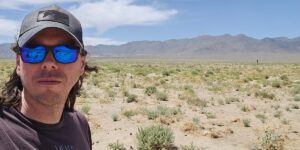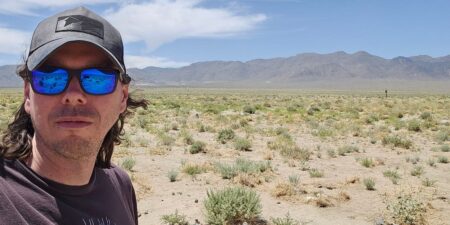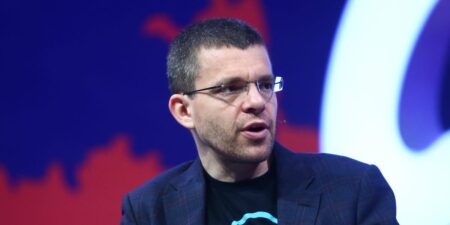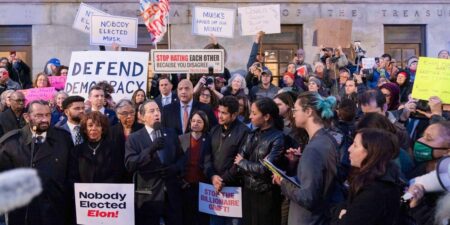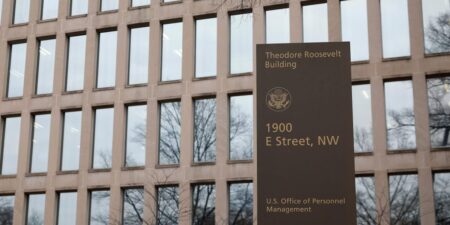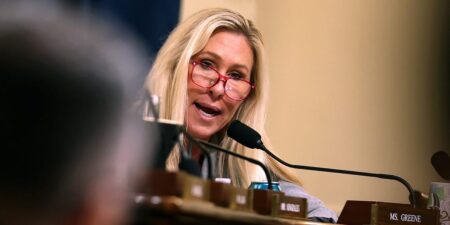They used to call themselves “self-starters.” Then it was “disruptors.” Now everyone in the tech set has a new self-description of choice: “high agency.”
Over the past year, high agency has become the aspirational character trait of Silicon Valley. Early last year, the analytics site Brandwatch found there was a 500% jump in mentions of the phrase across X, Reddit, and other social media sites. Not one but two podcasts titled “High Agency” have launched, one dedicated to AI, the other to entrepreneurship. On LinkedIn, a wide range of sectors, from solar to crypto, are suddenly seeking high-agency applicants. And on Substack, tech-culture essayists are schooling readers on how to ratchet up their high-agency qualities, which are said to be possessed by tech elites and top athletes.
It’s a trait mostly assigned to people who start their own companies, seize opportunities that others miss, and never take “no” for an answer. High-agency people are rich, successful, or on their way to being both. They’re action-oriented and find opportunities where others see roadblocks. “High agency is about actively going after what you want without waiting for the circumstances to be perfect,” the tech entrepreneur Andrew Yeung recently explained.
It’s no accident that the term has risen in popularity at the very moment that Elon Musk has extended his power and influence to the federal government and beyond. The head of Tesla, SpaceX, and Neuralink is the personification of high agency. AI pioneer Emad Mostaque recently praised Musk as “the most holistically intelligent, high-agency person I know.” It’s not just Musk’s success in business, which has made him the world’s richest man, it’s the way he conducts business, namely with an ethos of “follow your gut, critics be damned.”
America has a penchant for phrases that can inspire the next generation of business leaders and offer a model for them to follow.
Take Musk’s purchase of Twitter in 2022. When the tech entrepreneur offered to take the platform private for $44 billion — a price so inflated it would have violated the board’s fiduciary duty to reject it — he was widely ridiculed for effectively setting a giant pile of money on fire. But the deal helped make him one of the most talked-about figures in America, putting him on a course to unparalleled power as a chief advisor to Donald Trump.
It was, by definition, a classic high-agency move.
“High agency” was coined in 2016, when Eric Weinstein, then the managing director of Peter Thiel’s investment firm, referenced it during an appearance on a podcast hosted by the self-help guru Tim Ferriss. In Weinstein’s formulation, a high-agency approach to the world is “constantly looking for what is possible, in a kind of MacGyverish sort of a way.”
America, as Weinstein saw it, was emerging from a period of “low-agency, supersafe, timid, frightened kind of societal aspiration” that began around 1970. But the key to prosperity, he argued, lay in making space for “our marginal citizens of greatest ability, and looking for the unusual personality types that are irreverent and committed enough to making things happen and really do things.”
Weinstein’s formulation — that high-agency people are somehow built differently, and thus enjoy a superior status to mere mortals — has been a central part of how others now employ the term. “The dirty secret of hard drugs is that a small minority of super-disciplined high-agency people really can handle them,” the billionaire venture capitalist Marc Andreessen tweeted in September. “But then they sell them as something everyone can handle, which is savagely destructive.”
America has long exhibited a penchant for phrases that can both inspire the next generation of business leaders and offer a model for them to follow. Over the decades, buzzwords like grit, type A, or even girlboss have served as “a common language people can rally around,” says Americus Reed, a marketing professor at The Wharton School of the University of Pennsylvania. “They allow people to self-select into that group, or not. It’s a way to identify your tribe that gives more clarity about your role and how you’re expected to act in a particular situation.”
Today, “high agency” is gaining ground as a key quality that employers are looking for. Mike Basso, the CEO of a recruiting firm, has seen recent tech hires using the phrase more often. Employers who once focused on an applicant’s experience and intellect now want to know whether a candidate possesses more intangible qualities.
“High agency is someone who can take control of their own destiny,” Basso says. “You’re looking for whether they take ownership or blame others for the project’s failure.”
“High agency” is gaining ground both as a marketing buzzword and as a key quality that employers are looking for.
Basso recently saw a candidate with 15 years of experience dropped from consideration for a head of sales position. The employer, Basso says, was put off by the applicant’s complaints about the limitations they felt at their previous job, which the employer saw as a sign of someone who was too slow to take action, too focused on being given permission to do something before doing it. Not, in other words, the kind of high-agency person the job required.
When Austin King, the cofounder of the crypto startup Omni Network, first heard the phrase a few years ago, he immediately thought of a defining moment during his senior year at Harvard. When King left school for three weeks to travel to Korea to meet several luminaries in the crypto space, his grades suffered and his professors were furious. But the trip proved vital to raising funds for his first startup and establishing his career.
“We live in a world where if you operate with high agency, you can mold the world the way you want to see it,” King says. He now screens for “high-agency” qualities when he hires.
High agency has also become a marketing buzzword — one intended to convey a certain level of exclusivity and prestige. Last year, when a San Francisco software engineer announced plans to build a “walkable utopia” called Esmeralda, modeled on a college campus, it was pitched as a development where “creative, high-agency people” could rub shoulders and socialize.
Not everyone, though, is sold on the phrase — or the kind of single-minded, rules-be-damned drive it advocates. When Luigi Mangione was charged with murdering the CEO of insurance giant United Healthcare, many on social media noted that he looked to be the poster boy for high agency: an advanced degree in computer science, a zeal for rock climbing and other forms of risk-taking, someone “used to crushing it in all things,” as one observer tweeted. Mangione, a Reddit user suggested, “is a good case study for non-conformism and high agency gone wrong.”
Weinstein, the man who coined the term, acknowledged that high agency is not without its downsides. But in the end, he argued, the risks are worth the rewards.
“These are my people,” he told Ferriss. “And they’re tough to deal with, and I don’t always enjoy them. But I do think that without them, it’s not much of a football team. I think one of the things that the US still has over, let’s say, a competitor like China is that we tolerate the middle finger.”
Dan Latu is a real estate reporter at Business Insider.
Read the full article here



